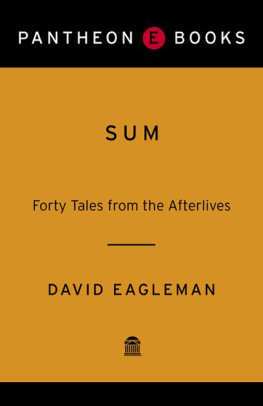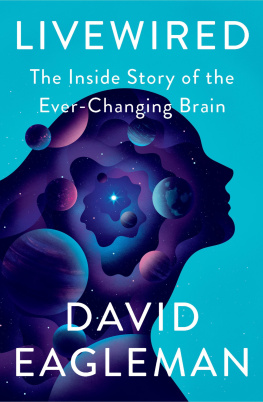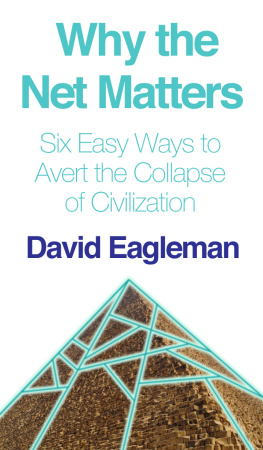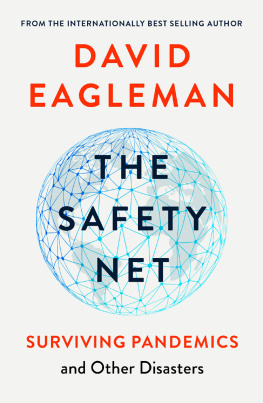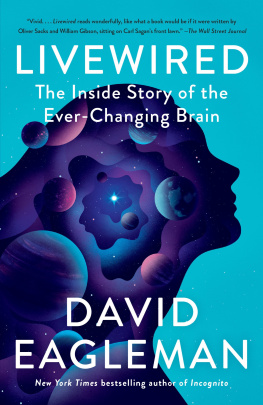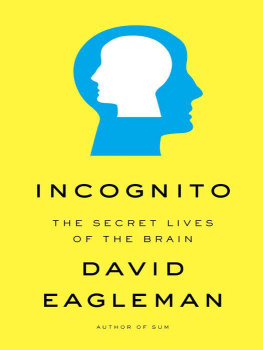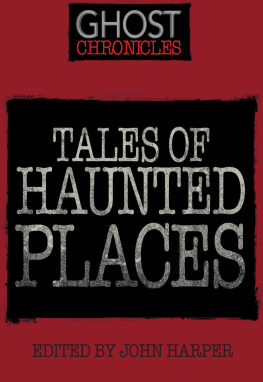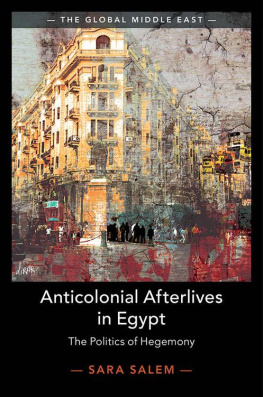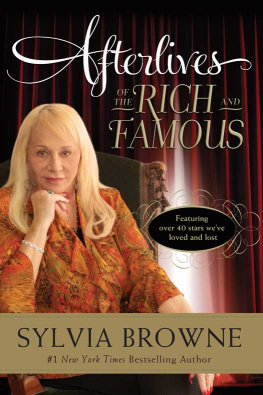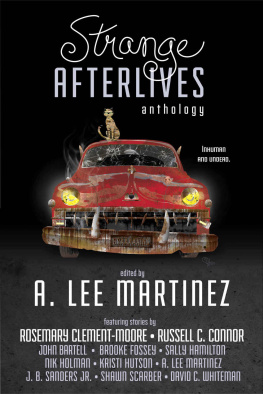David Eagleman - Sum: Forty Tales from the Afterlives
Here you can read online David Eagleman - Sum: Forty Tales from the Afterlives full text of the book (entire story) in english for free. Download pdf and epub, get meaning, cover and reviews about this ebook. year: 2009, publisher: Pantheon, genre: Romance novel. Description of the work, (preface) as well as reviews are available. Best literature library LitArk.com created for fans of good reading and offers a wide selection of genres:
Romance novel
Science fiction
Adventure
Detective
Science
History
Home and family
Prose
Art
Politics
Computer
Non-fiction
Religion
Business
Children
Humor
Choose a favorite category and find really read worthwhile books. Enjoy immersion in the world of imagination, feel the emotions of the characters or learn something new for yourself, make an fascinating discovery.
- Book:Sum: Forty Tales from the Afterlives
- Author:
- Publisher:Pantheon
- Genre:
- Year:2009
- Rating:5 / 5
- Favourites:Add to favourites
- Your mark:
- 100
- 1
- 2
- 3
- 4
- 5
Sum: Forty Tales from the Afterlives: summary, description and annotation
We offer to read an annotation, description, summary or preface (depends on what the author of the book "Sum: Forty Tales from the Afterlives" wrote himself). If you haven't found the necessary information about the book — write in the comments, we will try to find it.
Sum: Forty Tales from the Afterlives — read online for free the complete book (whole text) full work
Below is the text of the book, divided by pages. System saving the place of the last page read, allows you to conveniently read the book "Sum: Forty Tales from the Afterlives" online for free, without having to search again every time where you left off. Put a bookmark, and you can go to the page where you finished reading at any time.
Font size:
Interval:
Bookmark:



In the afterlife you relive all your experiences, but this time with the events reshuffled into a new order: all the moments that share a quality are grouped together.
You spend two months driving the street in front of your house, seven months having sex. You sleep for thirty years without opening your eyes. For five months straight you flip through magazines while sitting on a toilet.
You take all your pain at once, all twenty-seven intense hours of it. Bones break, cars crash, skin is cut, babies are born. Once you make it through, it's agony-free for the rest of your afterlife.
But that doesn't mean it's always pleasant. You spend six days clipping your nails. Fifteen months looking for lost items. Eighteen months waiting in line. Two years of boredom: staring out a bus window, sitting in an airport terminal. One year reading books. Your eyes hurt, and you itch, because you can't take a shower until it's your time to take your marathon two-hundred-day shower. Two weeks wondering what happens when you die. One minute realizing your body is falling. Seventy-seven hours of confusion. One hour realizing you've forgotten someone's name. Three weeks realizing you are wrong. Two days lying. Six weeks waiting for a green light. Seven hours vomiting. Fourteen minutes experiencing pure joy. Three months doing laundry. Fifteen hours writing your signature. Two days tying shoelaces. Sixty-seven days of heartbreak. Five weeks driving lost. Three days calculating restaurant tips. Fifty-one days deciding what to wear. Nine days pretending you know what is being talked about. Two weeks counting money. Eighteen days staring into the refrigerator. Thirty-four days longing. Six months watching commercials. Four weeks sitting in thought, wondering if there is something better you could be doing with your time. Three years swallowing food. Five days working buttons and zippers. Four minutes wondering what your life would be like if you reshuffled the order of events. In this part of the afterlife, you imagine something analogous to your Earthly life, and the thought is blissful: a life where episodes are split into tiny swallowable pieces, where moments do not endure, where one experiences the joy of jumping from one event to the next like a child hopping from spot to spot on the burning sand.

In the afterlife you discover that God understands the complexities of life. She had originally submitted to peer pressure when She structured Her universe like all the other gods had, with a binary categorization of people into good and evil. But it didn't take long for Her to realize that humans could be good in many ways and simultaneously corrupt and mean-spirited in other ways. How was She to arbitrate who goes to Heaven and who to Hell? Might not it be possible, She considered, that a man could be an embezzler and still give to charitable causes? Might not a woman be an adulteress but bring pleasure and security to two men's lives? Might not a child unwittingly divulge secrets that splinter a family? Dividing the population into two categoriesgood and badseemed like a more reasonable task when She was younger, but with experience these decisions became more difficult. She composed complex formulas to weigh hundreds of factors, and ran computer programs that rolled out long strips of paper with eternal decisions. But Her sensitivities revolted at this automationand when the computer generated a decision She disagreed with, She took the opportunity to kick out the plug in rage. That afternoon She listened to the grievances of the dead from two warring nations. Both sides had suffered, both sides had legitimate grievances, both pled their cases earnestly. She covered Her ears and moaned in misery. She knew Her humans were multidimensional, and She could no longer live under the rigid architecture of Her youthful choices.
Not all gods suffer over this; we can consider ourselves lucky that in death we answer to a God with deep sensitivity to the byzantine hearts of Her creations.
For months She moped around Her living room in Heaven, head drooped like a bulrush, while the lines piled up. Her advisors advised Her to delegate the decision making, but She loved Her humans too much to leave them to the care of anyone else.
In a moment of desperation the thought crossed Her mind to let everyone wait on line indefinitely, letting them work it out on their own. But then a better idea struck Her generous spirit. She could afford it: She would grant everyone, every last human, a place in Heaven. After all, everyone had something good inside; it was part of the design specifications. Her new plan brought back the bounce to Her gait, returned the color to Her cheeks. She shut down the operations in Hell, fired the Devil, and brought every last human to be by Her side in Heaven. Newcomers or old-timers, nefarious or righteous: under the new system, everyone gets equal time to speak with Her. Most people find Her a little garrulous and oversolicitous, but She cannot be accused of not caring.
The most important aspect of Her new system is that everyone is treated equally. There is no longer fire for some and harp music for others. The afterlife is no longer defined by cots versus waterbeds, raw potatoes versus sushi, hot water versus champagne. Everyone is a brother to all, and for the first time an idea has been realized that never came to fruition on Earth: true equality.
The Communists are baffled and irritated, because they have finally achieved their perfect society, but only by the help of a God in whom they don't want to believe. The meritocrats are abashed that they're stuck for eternity in an incentiveless system with a bunch of pinkos. The conservatives have no penniless to disparage; the liberals have no downtrodden to promote.
So God sits on the edge of Her bed and weeps at night, because the only thing everyone can agree upon is that they're all in Hell.

When you die, you feel as though there were some subtle change, but everything looks approximately the same. You get up and brush your teeth. You kiss your spouse and kids and leave for the office. There is less traffic than normal. The rest of your building seems less full, as though it's a holiday. But everyone in your office is here, and they greet you kindly. You feel strangely popular. Everyone you run into is someone you know. At some point, it dawns on you that this is the afterlife: the world is only made up of people you've met before.
It's a small fraction of the world population about 0.00002 percentbut it seems like plenty to you.
It turns out that only the people you remember are here. So the woman with whom you shared a glance in the elevator may or may not be included. Your second-grade teacher is here, with most of the class. Your parents, your cousins, and your spectrum of friends through the years. All your old lovers. Your boss, your grandmothers, and the waitress who served your food each day at lunch. Those you dated, those you almost dated, those you longed for. It is a blissful opportunity to spend quality time with your one thousand connections, to renew fading ties, to catch up with those you let slip away.
Font size:
Interval:
Bookmark:
Similar books «Sum: Forty Tales from the Afterlives»
Look at similar books to Sum: Forty Tales from the Afterlives. We have selected literature similar in name and meaning in the hope of providing readers with more options to find new, interesting, not yet read works.
Discussion, reviews of the book Sum: Forty Tales from the Afterlives and just readers' own opinions. Leave your comments, write what you think about the work, its meaning or the main characters. Specify what exactly you liked and what you didn't like, and why you think so.

